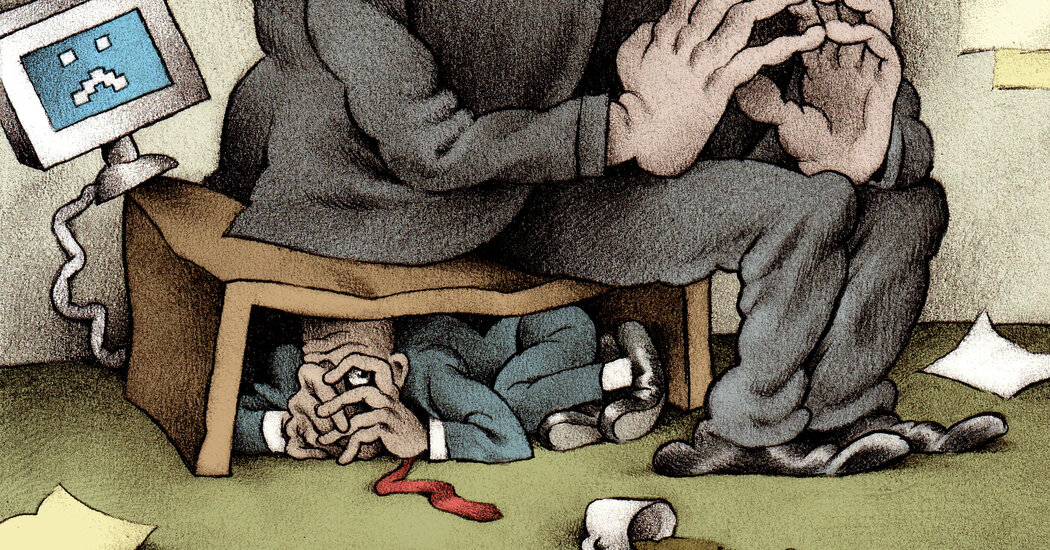Warren Buffett needs no introduction. The 94-year-old is widely considered one of the greatest investors of all time, having built his company Berkshire Hathaway into the sixth largest publicly traded company in the world.
Within Berkshire is a more than $300 billion equities portfolio that the Oracle of Omaha, with the help of his investing lieutenants, has built from scratch over decades. Buffett has had success picking stocks big and small across a wide range of industries. Here are two Warren Buffett stocks you can buy and hold for decades.
American Express: 12.1% of the portfolio
Berkshire’s second-largest position, behind the consumer tech giant Apple, is the large credit card and payments company American Express (NYSE: AXP). Buffett has a storied history with AmEx. He acquired his first stake in it in the 1960s amid a bit of a crisis for the company at the time. But in 1991, when credit cards were raging, Berkshire bought $300 million of AmEx stock, the beginning of many other sizable purchases over the next few decades. Today, Berkshire’s stake in AmEx is worth more than $36.8 billion. The stock has also more than doubled over the last five years.
Investors can still comfortably buy and hold American Express for a few reasons. AmEx has developed the kind of brand that most companies are envious of, similar to the way Apple has with products like the iPhone. Although AmEx cards have plenty of great product features, one of the main reasons people have them is because the brand represents a certain kind of status. It means something to have the AmEx card, whether it’s a sign of wealth, financial freedom, or access to the perks that come with an AmEx membership. This is a huge strength because it allows AmEx to attract a lot of higher-income and wealthy customers with credit profiles that hold up better during a recession.
Additionally, AmEx is unique in that it operates a massive payments network, similar to Visa and Mastercard, although not nearly as big. This business earns tens of billions of dollars in fees every year from facilitating transactions between the company’s card members and merchants.
In fact, payments revenue made up over half of the company’s total revenue through the first six months of the year. These payment businesses are more capital-efficient and tend to earn higher multiples than a credit card business because they are hard to replicate and therefore scale.
Bank of America: 11.2% of the portfolio
Buffett and Berkshire first invested in Bank of America (NYSE: BAC), the U.S.’s second largest bank by assets, in 2007 amid the global financial crisis. Buffett’s first go-round with the company was less than stellar, as Berkshire purchased shares while Bank of America was trading in the high $40s and low $50s and sold a year or so later at big losses.
But in 2011, Buffett tried again. The story goes that Buffett called CEO Brian Moynihan, who still leads the bank today, and offered to invest capital. Moynihan insisted that Bank of America didn’t need capital, but Buffett convinced him to take it anyway, suggesting it would provide stability after a very chaotic few years in the banking industry. Berkshire would inject $5 billion of capital into Bank of America in return for $5 billion of preferred stock paying a 5% dividend. Berkshire also received warrants, allowing the conglomerate to purchase 700 million shares at a strike price of $7.14 per share any time over the next decade. It has been one of the best deals Buffett has ever done.
Buffett has been selling the stock as of late. Since mid-July, Berkshire has unloaded nearly $7 billion of his stake in the company at an average price of $41.08. But considering that he’s been buying shares since 2017, largely in the $20s, it’s clear that Buffett has done quite well on his investment. Also keep in mind that Buffett and Berkshire have a much different mindset than retail investors, due to having held such a large position in the bank and running such a massive equities portfolio.
Moynihan has done a great job of transforming Bank of America and building it into the behemoth it is today. Bank of America arguably has the best consumer deposit base in the world, and the bank has also built its investment banking and wealth/asset management businesses into giants that now compete with the best of the best. Although the bank could have done a better job of managing the balance sheet over the past few years — the company has billions of unrealized securities losses — the power and granularity of Bank of America’s deposit base ensures that it would be near-impossible for the bank to face a significant deposit run and have to sell bonds at a loss.
The deposit base also gives Bank of America a lower funding base, which can be deployed into loans and securities and earn a healthy spread. As the yield curve finally un-inverts and potentially begins to steepen in the coming months as interest rates fall, Bank of America is well positioned to take advantage.
Should you invest $1,000 in American Express right now?
Before you buy stock in American Express, consider this:
The Motley Fool Stock Advisor analyst team just identified what they believe are the 10 best stocks for investors to buy now… and American Express wasn’t one of them. The 10 stocks that made the cut could produce monster returns in the coming years.
Consider when Nvidia made this list on April 15, 2005… if you invested $1,000 at the time of our recommendation, you’d have $729,857!*
Stock Advisor provides investors with an easy-to-follow blueprint for success, including guidance on building a portfolio, regular updates from analysts, and two new stock picks each month. The Stock Advisor service has more than quadrupled the return of S&P 500 since 2002*.
*Stock Advisor returns as of September 9, 2024
American Express is an advertising partner of The Ascent, a Motley Fool company. Bank of America is an advertising partner of The Ascent, a Motley Fool company. Bram Berkowitz has a position in Bank of America. The Motley Fool has positions in and recommends Apple, Bank of America, Berkshire Hathaway, Mastercard, and Visa. The Motley Fool recommends the following options: long January 2025 $370 calls on Mastercard and short January 2025 $380 calls on Mastercard. The Motley Fool has a disclosure policy.
2 Warren Buffett Stocks You Can Buy and Hold for Decades was originally published by The Motley Fool


